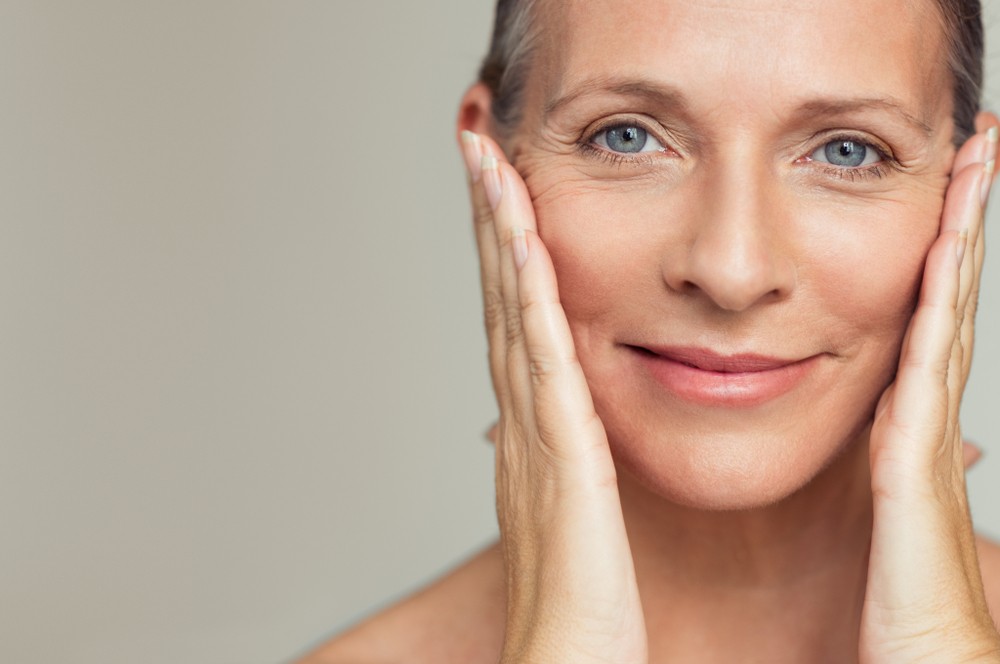Improve the look and feel of your skin with the correct skincare routine and lifestyle
Skin is the largest organ of our body. As we age, our skin begins to lose it moisture, becomes thinner, and soon fine lines are followed by wrinkles. Improving your skin in your 60s and 70s may seem inevitable. You may notice your skin begins to look paper-like, itchier, age spots appears, wrinkles, creases, blotches, easily bruised, healing slows down, skin becomes more susceptible to infections.
How to improve the overall health of your skin?
- Stay hydrated – Drink an adequate amount of water. Lack of hydration will turn your skin dry and flaky. Dry skin has less resilience and is more prone to wrinkling.
- Start your day with a glass of warm water with a dash of lemon and some honey.
- Drink at least eight glasses of water throughout the day. It will help flush out all the toxins.
- By increasing water intake your skin will have a more radiant glow.
- Bathing – To relieve from dry skin simple changes to your bath can reduce dryness, itchy skin and prevent them from becoming a serious problem.
- Keep your shower time short – 10 minutes. Use warm water as hot water stripes out the natural oil from the body leaving it dry.
- Replace soap bars with a gentle, moisturizing, fragrance-free cleanser.
- Avoid using bath essential oils to prevent from falling.
- Use a soft cloth to wash your skin instead of bath brushes or loofahs to prevent skin dryness and irritation.
- Pat your body gently with a soft towel, having a little bit of water on your skin while applying moisture helps hydrate your skin.
- Apply fragrance-free moisturizer within three minutes of bathing and throughout the day. It will restore your skin’s protective barrier and ease dryness.
- Skin Protection – Even in your 60s and 70s, sun protection is essential. You need to protect your skin from further developing more wrinkles, age spots, and blotches of discolored skin. Sun protection helps to prevent new age spots, risk of skin cancer, dryness and thinning of the skin.
- Time in the sun – It is best to avoid going out during peak times when the sun’s rays is strongest, try to stay indoors between 10 am-4 pm. Being in the water can cause sunburns so be careful when you are in the pool, lake or beach.
- Sunscreen – Don’t forget to apply a sunscreen with sun protection factor (SPF) 30 or more 15-30 minutes before you step out. It is ideal to reapply your sunscreen every two hours. Use an adequate amount when you go swimming.
- Clothing – Wear clothes that offer sun protection i.e. the bright light should not pass through your clothes. If you have to be in the sun then wear lightweight loose long sleeve shirts and long pants or skirts. A hat with a wide brim will protect your face, neck, and head. Wear polarised sunglasses as they block the intense light.
- Gloves – Wear gloves while gardening to prevent from harsh chemicals and other things that can irritate, scratch or dry your skin. You also reduce the risk of injuring your skin with your gloves on.
- Avoid usage of perfumes – As you age your skin becomes sensitive towards perfumes and colognes due the alcohol content. Alcohol may cause irritation to your skin making it dry and itchy.
- You may use natural oil based perfumes instead of alcohol based ones.
- Add some baking soda in your bath. It will help prevent body odour and excessive sweating.
- Massage your skin – It is highly recommended to massage your skin to prevent dryness and reduce the appearance of wrinkles.
- Experts say that a daily facial massage for three to five minutes done with your fingers in a circular motion increases blood circulation and reduces wrinkles.
- Get a whole-body massage once in a week with oil. It will help relax and nourish your skin preventing dryness.
- Humidify your home – Air-conditioning and heating stripe moisture from the air causing your skin to feel dry and itchy.
- Use a humidifier if the air feels dry.
- Keep humidity between 45-60% so that your skin feels moisturized.
- Smoking is harmful – Smoking damages collagen and elastin which provides elasticity contributing to wrinkles. It is harmful to the overall health especially your fragile skin. It reduces blood flow, depletes nutrients and oxygen of the skin.








